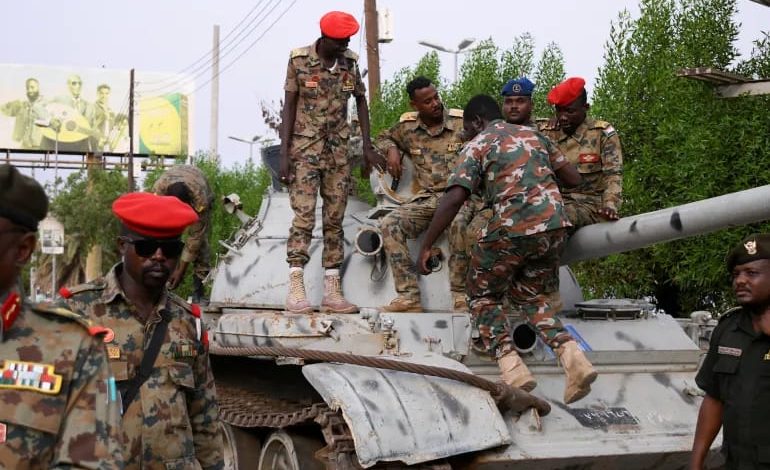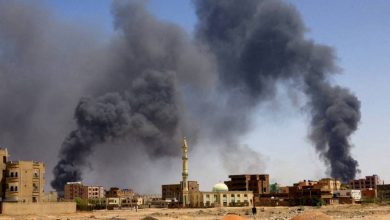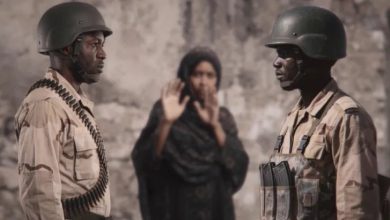Sudanese Army Announces Full “Cleansing” of Khartoum from Rapid Support Forces

The Sudanese army announced on Tuesday the complete recapture of Khartoum State and its “cleansing” of any presence of the Rapid Support Forces (RSF), following its takeover of the Republican Palace in the capital in late March.
According to a statement from the spokesperson of the Sudanese Armed Forces, “Army forces in all their formations continue to fulfill their duty in fighting the RSF and what it described as its local, regional, and international supporters and allies of ‘evil forces’,” noting that the army is achieving victories day after day, as reported by the Sudan News Agency (SUNA).
A Sudanese military source confirmed to Al Jazeera that the RSF shelled the Military Medical Corps facility in Omdurman, after field sources reported that the army had seized weapons and ammunition in the Al-Salha neighborhood in southern Omdurman, west of Khartoum.
Sources said the RSF launched drone strikes on the Wad Nubawi neighborhood, which is under army control, while the army announced it had bombarded remaining RSF positions in Al-Salha with heavy artillery.
Earlier, field sources told Al Jazeera that the Sudanese army had taken control of large parts of the Al-Jumayliyya areas in southwest Omdurman this morning, following battles with the RSF in which it succeeded in reclaiming those towns.
A military source also stated that an explosion occurred on Tuesday morning at the College of Education complex at the University of Khartoum in central Omdurman, west of Khartoum, indicating that investigations are underway to determine the details. The explosion caused material damage to some buildings and led to a suspension of academic activities.
The army and RSF exchanged artillery fire in Omdurman, with RSF drone strikes targeting the Wad Nubawi neighborhood under army control.
Since mid-April 2023, the Sudanese army and the RSF have been engaged in a war that, according to the United Nations and local authorities, has left more than 20,000 people dead and around 15 million displaced or turned into refugees.
In recent weeks, RSF-controlled areas in Sudan have been shrinking at a rapid pace in favor of the army, which has made significant gains in the capital, including the capture of the presidential palace, ministry headquarters, the airport, and security and military installations.
In a related development, the Sudanese government welcomed a statement by African Union Commission Chairperson Mahmoud Ali Youssouf, in which he commended the appointment by Sovereignty Council head and army commander Abdel Fattah al-Burhan of a civilian, technocratic Prime Minister.
Government spokesperson Khalid Al-Ayesir said in a press release: “We greatly appreciate this initiative from our African brothers. We hope the African Union will take urgent procedural steps to reinstate Sudan’s suspended membership, thereby supporting peace, security, and stability in Sudan, the African continent, and the world at large.”
On Monday, al-Burhan appointed Kamal Al-Tayeb Idris as Prime Minister, a position that had been vacant for nearly four years. He also appointed two new members to the Transitional Sovereignty Council.
The Prime Minister’s post had remained vacant for over four years, during which time Burhan had assigned the Secretary-General of the Council of Ministers, Osman Hussein, to serve as acting Minister for Cabinet Affairs and oversee the functions of the Prime Minister.
Idris hails from Al-Zawrat area, north of Dongola, the capital of Northern State. He was an independent candidate in Sudan’s 2010 presidential elections, where he ran against former President Omar al-Bashir.
He is best known for his tenure as Director General of the World Intellectual Property Organization (WIPO) and Secretary-General of the International Union for the Protection of New Varieties of Plants (UPOV), in addition to his membership in the United Nations International Law Commission.
While the United Nations and local authorities estimate the war has caused more than 20,000 deaths and displaced nearly 15 million people, research conducted by U.S. universities estimated the number of deaths to be around 130,000.



